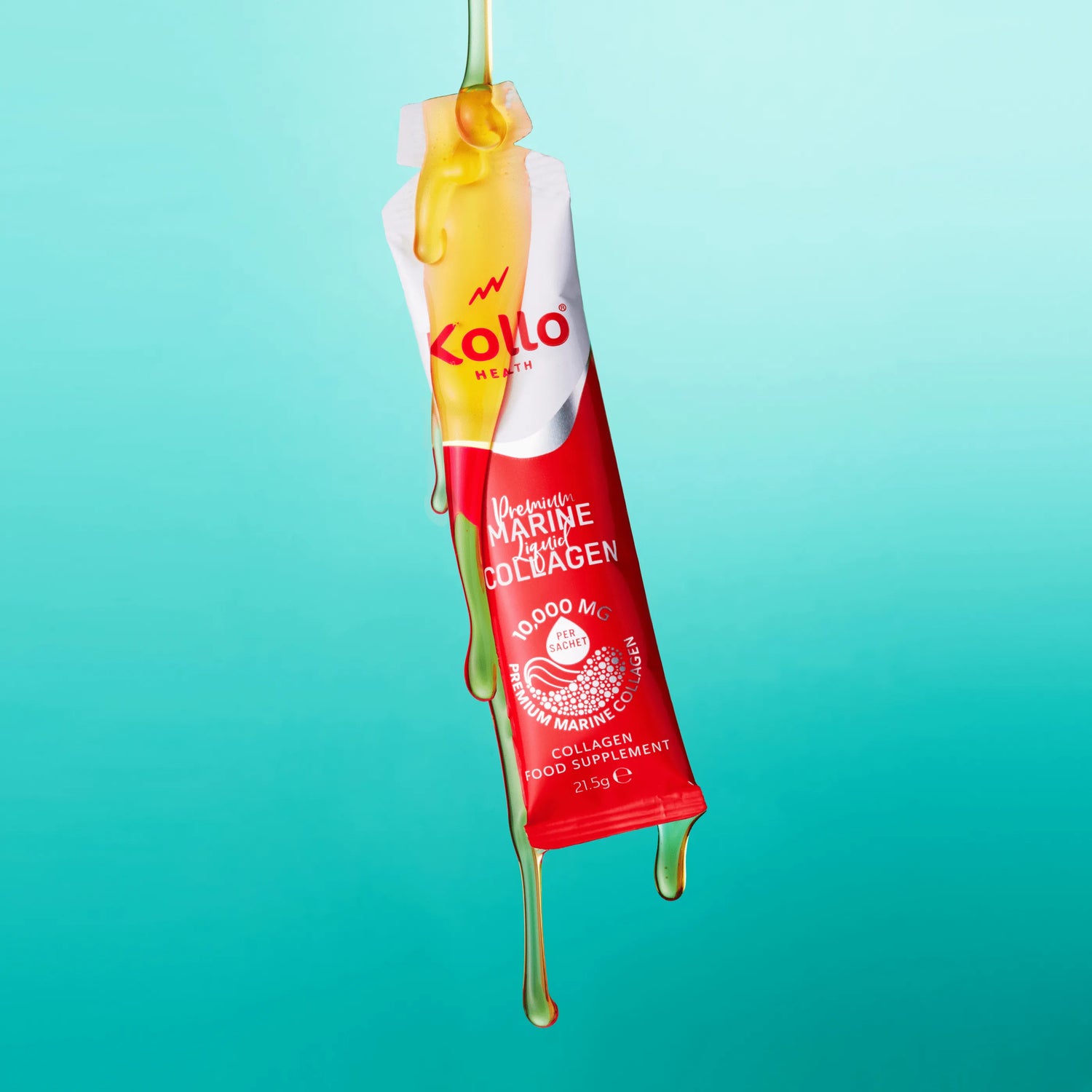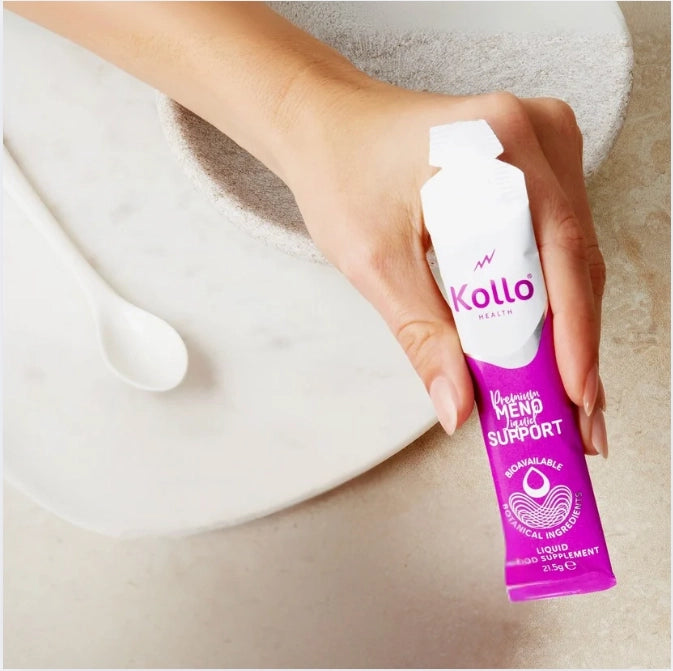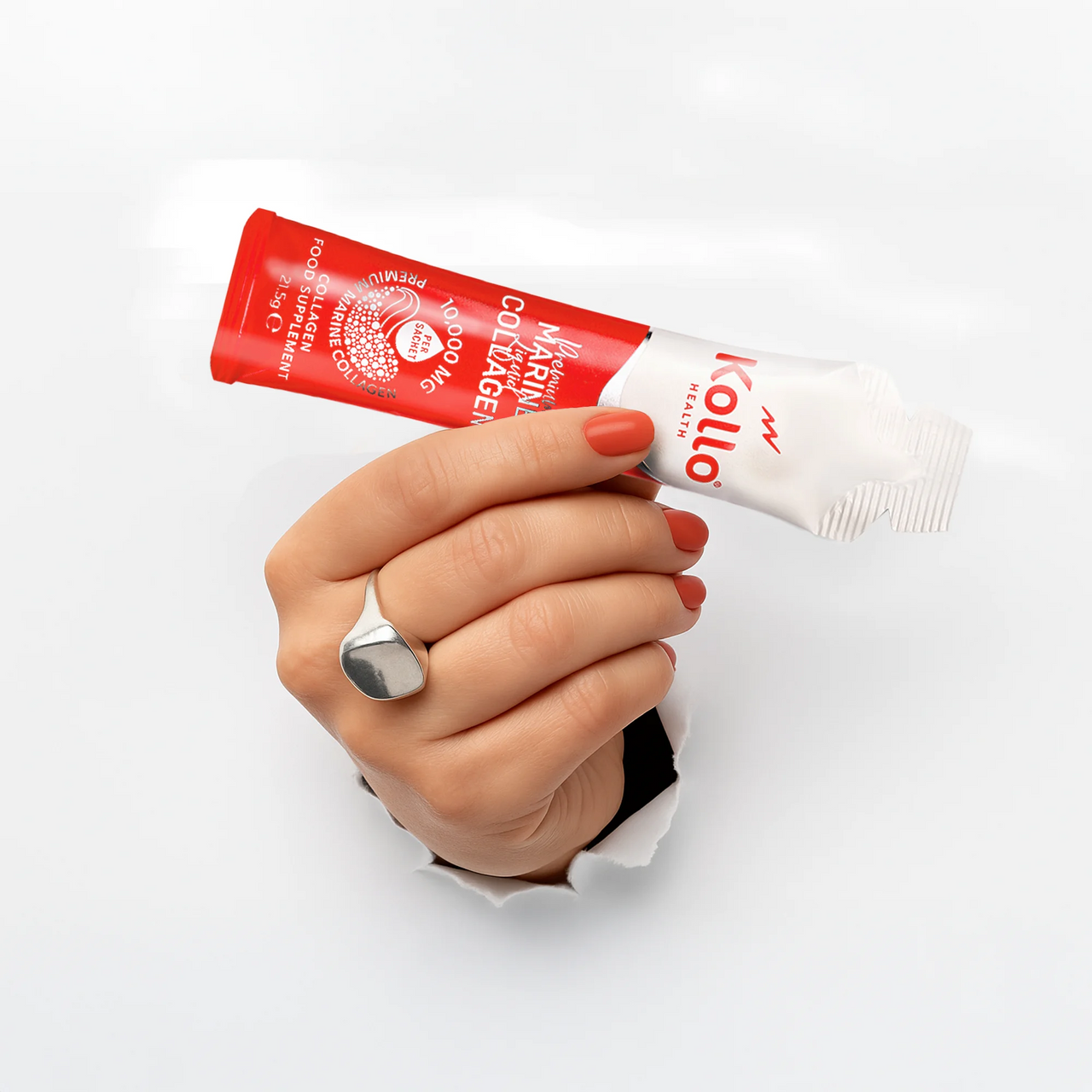Have you ever wondered why your skin bounces back when you pinch it or how your bones stay strong enough to survive a playground tumble? It's all thanks to a hidden superhero inside your body called collagen. This amazing collagen protein acts as the body's superglue, silently working behind the scenes to keep everything together.
But collagen isn't just one simple thing — it's more like a whole crew of superheroes, each with a particular job. There are different types of collagen, each built to tackle specific tasks in your body. Some types of collagen focus on keeping your skin plump and youthful, while others work tirelessly to build strong bones and muscles.
Are you confused by all this talk of collagen types? This blog is here to help. We'll break down the different types of collagen, explain what they do, and even explore some popular sources, like marine collagen.
By the end, you'll be a collagen expert, ready to decide what collagen supplement is right for you. Let's dive deep into the fascinating world of collagen.
What is Collagen?
Our body is a complex machine, and collagen is a crucial building block. In fact, collagen proteins are the most abundant protein in the human body.
This powerhouse protein acts as tiny super-strong threads that weave throughout your body. These threads bunch together to form thicker fibres, like building rebar that reinforces concrete.
Collagen fibres give your skin its elasticity, that "bounce back" feeling when you pinch it. They also help keep your bones strong and compact, like pillars holding up a building. And in your muscles and joints, collagen fibres act as cushions, allowing for smooth movement without pain. Even the strength of your hair and the shape of your organs rely on these fantastic protein threads.
What Does Collagen Do?

Imagine your body as a magnificent skyscraper, reaching for the sky with strength and grace. But beneath the gleaming facade lies a hidden network, the unsung hero that keeps it all standing tall: steel reinforcing rods.
Collagen is the steel reinforcing rods within our bodies. It provides the framework and support that keeps everything standing tall. From your skin's youthful suppleness to the strength of your bones, this essential protein plays a crucial role in keeping your body's structure functioning at its best.
Different types of collagen also play a vital role in keeping you moving smoothly and feeling your best. In the upcoming sections, we'll delve deeper into the world of collagen, exploring its many benefits and how it keeps you healthy from head to toe.
Skin Cells Superhero
Collagen fibres act like a tight mesh under your skin, giving it that plump and bouncy feeling. As we age, our bodies naturally slow collagen synthesis and stop creating new collagen. This slowing can lead to wrinkles, achy joints, and weaker muscles.
Imagine jumping on a trampoline — you bounce high when it's new and the springs are strong. But the springs weaken over time, and the bounce isn't as good.
The proper collagen supplement can help by providing your body with the building blocks to keep your skin youthful.
Bone Powerhouse
Collagen is tiny, super-strong bricks that help build and strengthen bones. These bricks pack tightly together, making bones dense and hard to break. However, as we age, our bones can lose some of these collagen bricks, making them weaker.
Collagen supplements can help by supplying your body with the materials it needs to keep your bones strong.
Muscle Mender
Collagen isn't just for bones and skin health. It’s also found in muscles, where it acts as a type of supportive scaffolding. These collagen fibres help hold your muscles together and give them strength.
Our bodies may make less collagen with age, leading to weaker muscles. The right collagen supplement can be helpful for athletes or anyone who wants to support their overall muscle health.
Joint Relief
Collagen is a key component in your joints. It's used in cartilage, the spongy tissue that cushions your joints and allows them to move. Your joints are like a hinge — cartilage is the padding that keeps the hinge moving without grinding.
When collagen production slows, cartilage can become thinner, leading to joint pain and stiffness. Collagen supplements can help by providing the building blocks your body needs to keep cartilage healthy and joints moving.
With all these benefits, it’s clear collagen is vital in keeping your body healthy and functioning correctly. But as we age, our natural collagen production slows down.
How Does Collagen Form?
Your body is a building and repairing professional. It uses tiny building blocks called amino acids to create all sorts of things, including collagen. Amino acids are similar to Legos — you can connect them in different ways to build different structures.
Our body needs specific types of Legos to make collagen. It also requires a special tool, like Vitamin C, to help snap these amino acids together into long chains. These long strands then twist into a super strong chain called a triple helix.
These triple helix strands then assemble into even thicker bundles called collagen fibrils. These fibrils are similar to braided ropes — much more substantial than individual strands.
What are the Different Collagen Types?

Our bodies are amazing factories, and collagen type comes in different varieties, each with a specific job. There are over 28 different types of collagen found throughout your body that help in various ways. The most important ones include those that support your skin, bones, and joints. Let's look into these key players in more detail.
Type 1 Collagen
This superstar is the most abundant type of collagen found in your skin, bones, tendons, and ligaments. It provides the primary framework that keeps everything firm, especially your skin.
Type 2 Collagen
Your joints are pretty amazing — they bend, twist, and absorb shock to keep you moving. The main protein behind this smooth movement is type 2 collagen. It's like a spongy cushion, or shock absorber, in your cartilage that protects your joints.
Our bodies make less type 2 collagen as we age, sometimes leading to achy joints. But, taking a supplement with this collagen type might help. It can provide the building blocks your body needs to keep your cartilage healthy and your joints fluid.
Type 3 Collagen
This multitasking type is the body's internal scaffolding, but how important is type 3 collagen? It plays a vital role in keeping muscles strong and supporting the structure of organs. Think of it as the body's internal scaffolding, supporting your muscles and organs for optimal function.
Type 4 Collagen
Your skin is a complex fort with many layers. Type 4 collagen acts like a strong foundation wall at the base. This hidden layer supports and keeps your skin’s other layers stable and healthy.
Type 5 Collagen
This type is the all-rounder, found in hair, corneas (the clear part of your eye), and even the inner layer of your skin. It contributes to strength and health in these areas, keeping hair shiny and eyes bright.
These are only a few of the many types of collagen. They work together throughout your body to keep you strong and healthy. But as we age, our collagen production slows down. This slowing can lead to wrinkles, achy joints, and weaker muscles.
What are the Different Sources of Collagen Supplements?
Taking collagen supplements is very popular these days. They help your body make its own collagen, which benefits your entire body. But with tons of options, picking the right collagen type and source can be confusing.
Don't worry, though! There are only a few primary sources of most collagen supplements. Let's uncover a bit more about each source.
Bovine Collagen
Bovine collagen is typically derived from cows and is widely available. It's a good source of collagen types, including types 1, 2, and 3. Bovine collagen is a versatile option for those looking to support collagen levels and improve skin health, joint function, and muscle strength.
Marine Collagen
Marine collagen is an excellent source of type 1 collagen, the most abundant structural protein. It tops the list for sustainability and bioavailability (how well your body absorbs it). But what is marine collagen? It’s derived from fish skin and scales, making it a popular choice for several reasons.
Marine collagen plays a crucial role in maintaining skin elasticity and reducing wrinkles. Studies suggest that the body quickly absorbs marine collagen peptides, making them a highly bioavailable option. Additionally, marine collagen is considered a sustainable source.
Vegan Collagen
This type isn't actual collagen but a mix of plant-based ingredients that may support collagen production. These ingredients often include vitamin C and specific amino acids. While vegan collagen doesn't provide your body with pre-made collagen, it can create an environment for your body to produce its own.
Regardless of the source you choose (bovine, marine, etc.), most supplements come in hydrolysed collagen form. This term means the collagen has been broken down into smaller pieces called bioactive collagen peptides. Whole collagen molecules are too large for your body to absorb effectively. Hydrolysed collagen peptides are easily absorbed and used throughout your body.
Your Body's Building Block Explained
This blog uncovered the different types of collagen, their benefits, and popular sources like marine collagen. Remember, collagen's benefits extend far beyond youthful skin. It plays a vital role in keeping your joints healthy and muscles strong.
Whether you want collagen for hair, to support healthy joints, or to experience the benefits of liquid collagen, supplementation can be a convenient way to give your body the building blocks it needs.
Here at Kollo Health, we offer a high-quality marine collagen 10,000 mg formula to support your overall well-being. Are you ready to take charge of your health with liquid marine collagen? Explore Kollo Health’s Premium Liquid Marine Collagen products today and see how they can help you appear more youthful and repair your body







